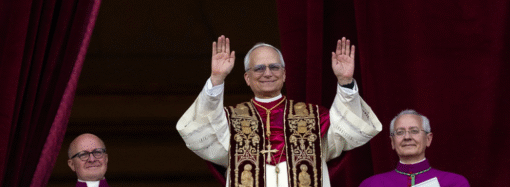Now, there’s a title that will wake the woke, particularly females, and send them roaring my way with brickbats and scalping knives. That word “handle” in particular splashes kerosene on the fires of rage, implying as it does some sort of manipulator.
Yet “How to Handle a Woman” is the name of a song in the 1960 musical Camelot, later made into a movie with Richard Harris playing the part of King Arthur. Utterly confounded by his wife Guinevere, Arthur recollects in song some words of advice from a “wise old man.”
‘How to handle a woman?
There’s a way,’ said the wise old man,
‘A way known by ev’ry woman
Since the whole rigmarole began.’
‘Do I flatter her?’ I begged him answer.
‘Do I threaten or cajole or plead?
Do I brood or play the gay romancer?’
Said he, smiling: ‘No indeed.
How to handle a woman?
Mark me well, I will tell you, sir:
The way to handle a woman
Is to love her … simply love her …
Merely love her … love her … love her.’
Solid advice, but for decades we Americans have made a Himalayan-sized mess of love, romance, and the timeless relationship between women and men. We’ve spent 50 years “empowering” girls and women, remodeling them with traditional male traits like assertiveness while, at the same time, trying to make boys and men more feminine. Search online for “what is a woman” and “can men have babies,” and you’ll see we’ve even mucked up the basic definitions of a man and a woman. We’ve allowed everything from academic theories to political propaganda to set up barriers to one of the most intense of human needs and emotions: the love between a man and a woman.
What follows here is a brief message aimed primarily at men in this wintertime of our confusion. Ladies—yes, yes, I know, that complimentary title offends some among you and increases my risk of being pilloried, but I’m old-school—are welcome to come along if you so choose.
Recently, gentlemen, I reread Anne Tyler’s novel Vinegar Girl. Modeled after the vexatious Kate in Shakespeare’s The Taming of the Shrew, Kate Battista is an unhappy, tactless woman in her late 20s. She is finagled into a relationship with her scientist-father’s brilliant assistant, Pyotr, who is about to be deported. Her dad cooks up a scheme for Kate and Pyotr to marry, which will allow Pyotr to remain in the United States, and it’s then that the sparks fly. Eventually, Kate comes, in her own way, to love and cherish Pyotr—so much so that, at a family celebration of her wedding, she offers an explanation and defense of male pride and stoicism that should make most of us stand up and cheer. Here’s a part of that speech:
“‘It’s hard being a man. Have you ever thought about that? Anything that’s bothering them, men think they have to hide it. … No matter if they’re hurting or desperate or stricken with grief, if they’re heartsick or they’re homesick or some huge dark guilt is hanging over them or they’re about to fail big-time at something—“Oh, I’m okay,” they say. “Everything’s just fine.” They’re a whole lot less free than women are, when you think about it.’”
Now, here is an author who understands something of what it is to be a man.
About the same time, I watched The Proposal where Sandra Bullock stars as Margaret Tate, an insensitive, hard-driving editor who makes Shakespeare’s Kate look like an angel. Her co-workers despise and fear her, and she treats her assistant, Andrew Paxton (Ryan Reynolds), like an indentured servant. Like Pyotr, the Canadian Margaret finds herself in danger of being deported after allowing her visa to lapse, and by threats and bribery, she induces Andrew to marry her, promising to promote him to editor if he’ll appear at the altar. After a series of comical mistakes and missteps, Margaret has an attack of conscience and flees the wedding. Andrew pursues her back to New York where he “handles” Margaret by declaring his love for her, asks her to marry him, and kisses her.
So, how do these two very different men, Pyotr and Andrew, win the hearts of these forceful, embittered women?
It’s simple, really: Pyotr loves Kate, and Andrew loves Margaret. As a result, they are loved in return.
Not all love is reciprocated, but for the right two people, it will be. And that’s the foundation of marriages, which form families, which are the foundation of society. For years now, our culture has bombarded us with countless lectures and commentaries, scores of books, and an eternity of hours spent with therapists, all trying to explain men to women and women to men. All have failed, and thank heavens for that, for what would romance be without mystery? So, here’s the key takeaway, guys: We don’t have to understand the women we love. All we have to do is love the women we love.
Make “vive la différence” your motto, and you’ll be a happier person.
Oh, and don’t forget: Valentine’s Day is just around the corner. Here’s just one more chance to say, in some very special way, “I love you.”
—
Image credit: Flickr-Insomnia Cured Here, CC BY-SA 2.0
4 comments















4 Comments
Patricia Peirson
February 3, 2023, 7:39 amThank you for a spot-on article. I've asked for years now, "What's wrong with women? Why have they thrown away with both hands the beauty of romance and love men once were free offer? Why don't they want to be women?" My husband and I watch old romantic comedies and dramas as well as musicals like "Camelot" and even older ("The King and I" comes to mind). Such stories depend on and delve into the wonderful differences between men and women, and love is key to coming to terms with those differences. Regarding musicals: Women should stop and listen, really listen, to the love songs. These were written by men with the desire to speak to the heart of a woman. They came from a good place. However, they were written for women who, in turn, respected men, wanted their love, and did not look upon them as an enemy to be crushed.
REPLYPeggy Meyer
February 5, 2023, 5:16 amAn important part pf that love is to simply LISTEN to your woman. Be patient and endure long bouts of sharing!
REPLYJadeD
February 6, 2023, 6:08 pmI just feel this is overly simplistic… St. Paul wrote the same thing 2000 years ago, but domestic violence/abuse never stopped, the infidelity double standard still rules even Christianized macho cultures, men still marry for beauty and get really aggravated or uptight when their wives have emotional needs or are sometimes smarter than them. 🙁
REPLYMany men don’t know what “loving a woman” means.
Even rad-trad clerics can’t describe the details of that mission further than, “men, be ready to lay down your life.” In a very negative tone. So the emphasis —especially today as we combat the catastrophic effects of rad-fem— is on the “wives, submit” part because that seems more clear, even though the context was a culture in which wives were naturally property expected to obey, and not full persons. As though that were the condition for men to love their wives.
But in the Gospel, the Lord’s example was LISTENING closely to the women in His life as persons, and trusting them with missions (and I’m not a rad-fem by any means, simply speaking plain truth). They felt loved.
“Of course I love ya, don’t I go to work every day and come home at night?” is cold comfort to a lonely wife. And if “love is not a feeling” is the prevailing philosophy…well… feelings are really good motivators for the will to love, aren’t they?
If white people can learn to see black people as equals, if societies can learn to be sensitive of the needs of the disabled people, if religious people can become friendly towards people of different beliefs, can’t we expect men to grow closer to the ideal Christ taught, and see the women they purportedly love, as persons too?
What does “loving a woman” really mean?
And would men like Andrew and Pyotr have been interested in Margaret or Kate if they weren’t strong contrary personalities? Women are not one-size fits all, thank God, or else men would have a very boring time! Some women are looking for a match to their strengths!
Thanks and hope you get what I’m trying to say here.
Newlywedbeth @JadeD
February 2, 2024, 2:07 pmBoy! Do I get it? Yes! Don't let my handle fool you. 17 years married and, after the 4 year honeymoon, he shows no love. At least I thought he didn't. Recently I went through the 5 love languages ala Gary Chapman. My hubby shows none of them. Ooh! That makes me so mad. He belittles me, gaslights me, mocks me, yells at me in public, and projects constantly (telling me I'm talking too much with my 15 second comment while he talks for 24 minutes nonstop kind of projecting.) I was ready to call it off. But discovered he had come from a horribly dysfunctional toxic Christian family. That's how they functioned. So I prayed like crazy and modeled healthy behavior. He has been changing so much lately, others have even noticed. Love begats love.
REPLY